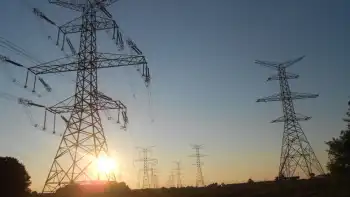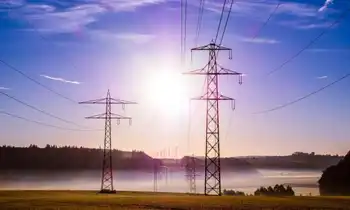Canadian power line work begins
The 145-mile, 345-kilovolt transmission line, known as the Northeast Reliability Interconnect, is the result of a collaboration between Bangor Hydro-Electric Co. and New Brunswick Power. The line was proposed to increase the reliability, stability and efficiency of electric delivery systems on both sides of the border.
"The international power line project will improve system efficiency by reducing losses for delivery of energy for our customers," said David Hay, president and CEO of NB Power.
Presently, the Maine Electric Power Co. line is the only connection between Maine and the Maritime provinces.
Construction on the 85-mile-long Maine portion of the line began in July. The Maine portion of the Northeast Reliability Interconnect route begins in Orrington and follows, for the most part, existing transmission lines and natural gas pipelines until it reaches the St. Croix River near Baileyville where it will connect with the Canadian line when that project is completed. The 60-mile-long Canadian section of the transmission line will connect to a substation near the Point Lepreau nuclear power plant.
"In about a year's time, our two projects will be joined together as one international transmission line," said Rob Bennett, president of Bangor Hydro.
The line is scheduled to be in service by December 2007.
The Maine section of the line will be owned and operated by Bangor Hydro. The New Brunswick section will be owned and operated by NB Power.
The New Brunswick government also is investing about $1.4 billion in overhauling the 23-year-old Point Lepreau nuclear power plant to extend its life by another 20 to 25 years. That project has a September 2009 completion date.
Related News

Germany agrees 200 bln euro package to shield against surging energy prices
BERLIN - German Chancellor Olaf Scholz set out a 200 billion euro ($194 billion) "defensive shield", including a gas price brake and a cut in sales tax for the fuel, to protect companies and households from the impact of soaring energy prices.
Europe's biggest economy is trying to cope with surging gas and electricity costs caused largely by a collapse in Russian gas supplies to Europe, which Moscow has blamed on Western sanctions following its invasion of Ukraine in February.
3 minute readSeptember 29, 202211:35 AM PDTLast Updated 6 days ago
Germany agrees 200 bln euro package to shield against surging energy…





